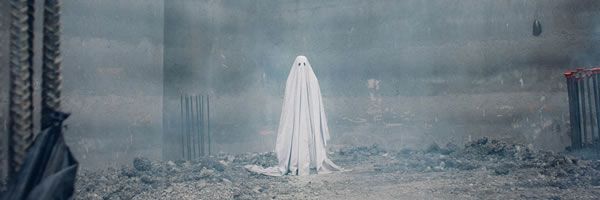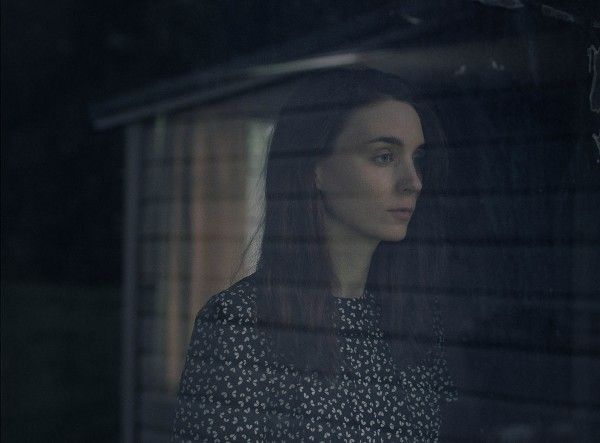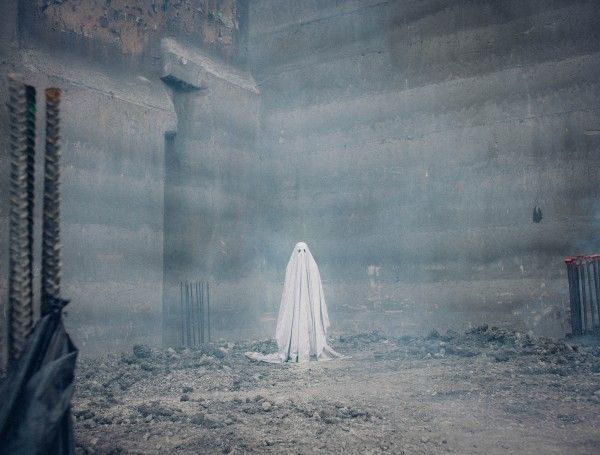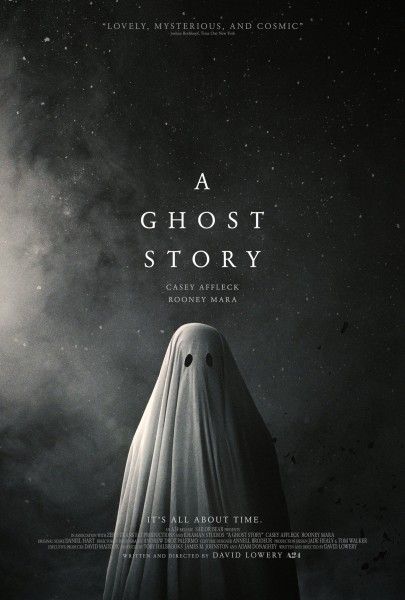[This is a re-post of my review from the 2017 Sundance Film Festival. A Ghost Story opens tomorrow in limited release.]
David Lowery’s A Ghost Story isn’t a horror film, at least not in the traditional sense. Nor is it particularly concerned with the supernatural. Instead, A Ghost Story lingers. It’s a film about staying behind and bearing witness but having no affect. It’s deeply sad, melancholy, and somber, and yet constantly fascinating. It’s a film where the less you know about it, the better it will be, not because of any twists or turns, but because the movie is so unusual and unexpected. At the end, I’m not even sure I liked the movie, but I definitely respected what Lowery was trying to accomplish with his minimalist narrative.
C (Casey Affleck) and M (Rooney Mara)—which is how they’re credited, although they’re never referred to by these names or any name, and for all intents and purposes may as well be “man” and “woman”—have a peaceful life together that’s shattered when C dies in a car accident. After M identifies his body at the morgue, she lays a sheet over his head and leaves. A few moments later, he gets up and is now a ghost, represented by the sheet with two eyeholes (although we never see his eyes). C makes his way back to his home where he watches M try to move on with her life.
A lot more happens after that, but to give it away would spoil the power of Lowery’s vision. What I can reveal is that A Ghost Story is highly unusual and Lowery is effective at resetting his audience’s perception of reality. While a scene where Rooney Mara spends five minutes eating a pie may invite some derision, the scene fits with the rest of the film, which is that it’s quiet, restrained, and, like C, it lingers. We’re trapped with C in a world without him, and the greatest effect he can have on his surroundings is making lights flicker or throwing objects.
It’s a bold choice to take a major star like Affleck and then deprive him of every tool an actor has. Once he becomes a ghost, he doesn’t speak, we can’t see his face, and his body language is limited by being kept under a sheet. But for Lowery, that’s the afterlife. Everything that a person was is lost and reduced to memory, and individuality no longer exists. Whatever was left of C are now just memories for M.
A Ghost Story is not an easy film. It’s slow and methodical and consistently morose and melancholy. However, its ambition is astounding even though it’s technically a low-budget indie. A Ghost Story takes the kind of chances we want to see from independent film. Too often, “indie” just means, “the famous actors worked for scale”, but here, Lowery is really pushing the envelope on a difficult story with some deep thematic heft and challenging presentation.
While I don’t know if A Ghost Story is necessarily a film that people will “enjoy”, it’s one that’s absolutely worth your time if you like challenging cinema that will make you think. The film is inventive, tragic, moving, and told with a deft touch. It will haunt you.
Rating: B+




